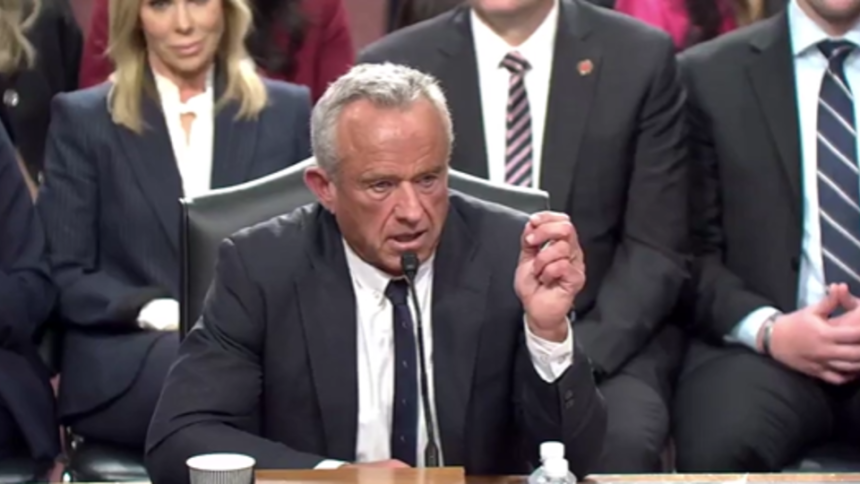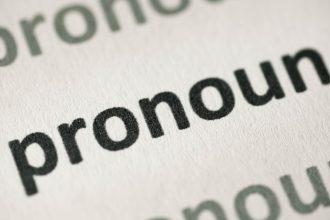Dining under palm trees on a patio at Mar-a-Lago in December, President-elect Donald Trump reassured chief executives at pharmaceutical giants Eli Lilly and Pfizer that anti-vaccine activist Robert F. Kennedy Jr. wouldn’t be a radical choice to head the Department of Health and Human Services.
“I think he’s going to be much less radical than you would think,” Trump said later that month during a news conference at his Palm Beach, Florida, resort.
Eight months have passed, and Kennedy is intensifying his attacks on the vaccine system.
High on his list of targets: a federal vaccine compensation program that settles injury claims. His strategy could bankrupt or diminish the fund, some legal scholars and public health leaders say, saddling pharmaceutical companies with liability risks and costs that would compel them to stop making vaccines altogether.
“It’s a radical agenda,” said Angela Rasmussen, a virologist at the Vaccine and Infectious Disease Organization at the University of Saskatchewan in Canada. “He’s using a bunch of different mechanisms and there really are no guardrails. People are going to catch on but it’s not going to be enough to stop the waves of deaths, and deaths of children.”
Kennedy has said changes to the U.S. vaccine system are needed because, he asserts without evidence, immunizations are linked to autism, neurotoxicity, allergies, and death. He is a leader of the “Make America Healthy Again” movement, an informal campaign that eschews traditional medicine and espouses “medical freedom.” Many adherents oppose vaccines and believe they are unsafe despite scientific evidence to the contrary.
Kennedy has acknowledged he wants to reform the vaccine fund, known as the Vaccine Injury Compensation Program, writing July 28 on the social platform X that “the VICP is broken, and I intend to fix it.” HHS is working with the Department of Justice to revamp the program, which shields drugmakers from most liability over injuries.
HHS didn’t respond to a request to speak with Kennedy, but agency officials said he isn’t opposed to immunizations.
“Secretary Kennedy is not anti-vaccine — he is pro-safety, pro-transparency, and pro-accountability,” HHS spokesperson Vianca Rodriguez Feliciano said in an email.
Yet behind the scenes, Kennedy has been laying the groundwork to restrict the availability of widely used immunizations, according to people familiar with internal discussions who asked not to be identified because they’re not authorized to speak on the topic.
A multipronged strategy
The strategy began taking shape in the spring. The first step: Raise unfounded questions about the safety of vaccines. At a Cabinet meeting in April, Kennedy told Trump that HHS was undertaking a massive study that would identify the cause of rising autism diagnoses by September.
Robert F. Kennedy Jr. has been laying the groundwork to restrict the availability of widely used immunizations. – Alex Wong/Getty Images
Kennedy tasked David Geier, a researcher who’s repeated the debunked claim that vaccines cause autism, to oversee the work, according to media reports.
Kennedy then doubled down by questioning the use of aluminum, which is added to many vaccines to help boost the immune response. He linked it to allergies at a July meeting of governors, even though a recent study in the Annals of Internal Medicine found no connection. He’s widely expected to ask a federal vaccine advisory committee to conduct a review.
The autism research and concerns about aluminum were early salvos in the push to go after the compensation fund, according to two of the people.
That fund provides money to people for injuries from vaccines and has paid out more than $5 billion since it was established in 1988, according to the Health Resources and Services Administration.
Before filing a lawsuit in court, injured individuals bring their claims to the program’s nonjury vaccine court, which reviews evidence. The fund provides compensation from a small excise tax on vaccines.
Compensation is determined in part by a table maintained by HRSA and overseen by the HHS secretary. It lists each vaccine and associated injuries and encompasses routine vaccinations recommended by the Centers for Disease Control and Prevention that are subject to the excise tax. The injuries include anaphylaxis and encephalitis. People who experience such injuries within a certain time after getting a specific vaccine can get money.
Kennedy wants to get autism or allergies added to that document, according to two people familiar with internal discussions and concerns raised publicly by some vaccine developers and former regulators. He could accomplish the goal if HHS-led research blames vaccines for autism, for example, or if a federal vaccine advisory panel recommends against aluminum in vaccines, according to some legal scholars.
“Given the rate of autism, if a lot of cases are brought, that could bankrupt the program,” said Dorit Reiss, a professor at University of California Law San Francisco.
If that were to happen, pharmaceutical companies could stop producing the immunizations, which don’t tend to be very profitable, rather than get entangled in drawn-out, expensive lawsuits from claimants who can’t get money because the federal vaccine injury fund has run dry, some legal experts and vaccine developers said.
“The compensation fund, if it’s gone, would impact decisions to proceed or not to proceed,” said David Dodd, president and CEO of GeoVax Labs, a biotechnology company developing vaccines and immunotherapies.
A federal vaccine advisory panel could also recommend against aluminum in shots, forcing drugmakers to make costly reformulations or exit the market.
Kennedy has placed people around him to execute the strategy. He’s pushed to get vaccine skeptics in decision-making positions at the CDC, which recommends vaccines, and the Food and Drug Administration, which approves them.
He also tapped leaders in the anti-vaccine movement to vet candidates for him.
The outcome has been regulatory and policy decisions that have winnowed vaccine access and development.
HHS this month said it was halting $500 million in grants and contracts for the development of mRNA vaccines, including an improved, more durable covid mRNA vaccine.
The federal government stopped recommending covid shots for healthy pregnant women and children, bypassing input from a vaccine advisory committee that traditionally would have weighed in.
And Kennedy reconstituted that committee with his own handpicked members, including vaccine skeptics, and removed the American Medical Association, American Nurses Association, and other industry groups that served as committee liaisons. The modified panel recommended against flu vaccines containing a preservative erroneously linked to autism.

HHS this month said it was halting millions of dollars in grants and contracts for the development of mRNA vaccines, including an improved, more durable Covid-19 mRNA vaccine. – Joe Raedle/Getty Images
The White House calls
Kennedy’s determination to keep vaccine skeptics in oversight positions played out in a deal he recently made with Trump and his staff, according to two people familiar with the situation. The arrangement came together on a Sunday night in July when Kennedy got a call from the White House.
The subject was Vinay Prasad, a top vaccine regulator at the FDA. He had recently touched off a wave of industry criticism for playing a role in the agency’s decision to ask biotech company Sarepta Therapeutics to halt shipments of a gene therapy over safety concerns.
Social media posts and conservative commentators whipped up a furor. Laura Loomer, a far-right provocateur, said July 21 on X that Prasad should be fired and called him “a self-proclaimed progressive liberal and Bernie Sanders fanboy,” referring to Sen. Bernie Sanders (I-Vt.). Congressional lawmakers began peppering the White House with questions.
The furor reached Trump, who wanted Prasad out, according to the people. But Kennedy was concerned about losing Prasad. He felt he needed a critic of immunizations overseeing vaccines at the agency.
So Kennedy struck a deal. Prasad would be asked to resign as head of the FDA’s Center for Biologics Evaluation and Research, which regulates vaccine products and biologics such as gene therapies. And the center would be divided into two operations, with Kennedy empowered to select the person overseeing vaccines.
Some public health leaders publicly shared details of the arrangement and raised concerns about its potential impact. Former FDA Commissioner Scott Gottlieb said in an Aug. 1 interview on CNBC that he thought it “would be very destructive to the agency.”
After leaving the agency in July, Prasad is now returning, though it is unclear if his role has changed.
Recently, Kennedy was sued by Ray Flores, senior outside council for the Children’s Health Defense. The Children’s Health Defense, an anti-vaccine group founded by Kennedy, is funding the suit, which claims Kennedy failed to launch a task force to study vaccine safety that it says is required to report findings to Congress. But Kennedy and his allies view the lawsuit as friendly, according to one person familiar with the matter, because it is seeking an outcome that he wants.
HHS on Aug. 14 announced it was reviving a federal panel, disbanded in 1998, to provide oversight of pediatric vaccines.
Kennedy’s work against vaccines has triggered unfriendly lawsuits too, including one brought by the American Academy of Pediatrics and other public health groups. His recent decision to halt funds for mRNA vaccine development yielded a swell of social media criticism.
“This is reckless. This is dangerous. This will cost lives. We must fight back,” Sen. Edward Markey (D-Mass.) said Aug. 5 on X.
“I’ve tried to be objective & non-alarmist in response to current HHS actions – but quite frankly this move is going to cost lives,” Jerome Adams, who was U.S. surgeon general during the previous Trump administration, said Aug. 5 on the same platform.
Kennedy and his backers remain undeterred. In a counterpunch, his supporters are launching an unprecedented public relations campaign to promote the HHS secretary, spurring speculation that he may be mulling a 2028 presidential run.
The nonprofit MAHA Action held a call in July to energize Kennedy supporters and initiated a six-figure ad campaign extolling Kennedy and Trump administration health initiatives.
“Make no mistake, this is a revolution that will change the face of public health policy,” Tony Lyons, president of MAHA Action, said in a statement. “Americans are demanding radical transparency and gold standard science.”
KFF Health News is a national newsroom that produces in-depth journalism about health issues and is one of the core operating programs at KFF — the independent source for health policy research, polling, and journalism.
For more CNN news and newsletters create an account at CNN.com









